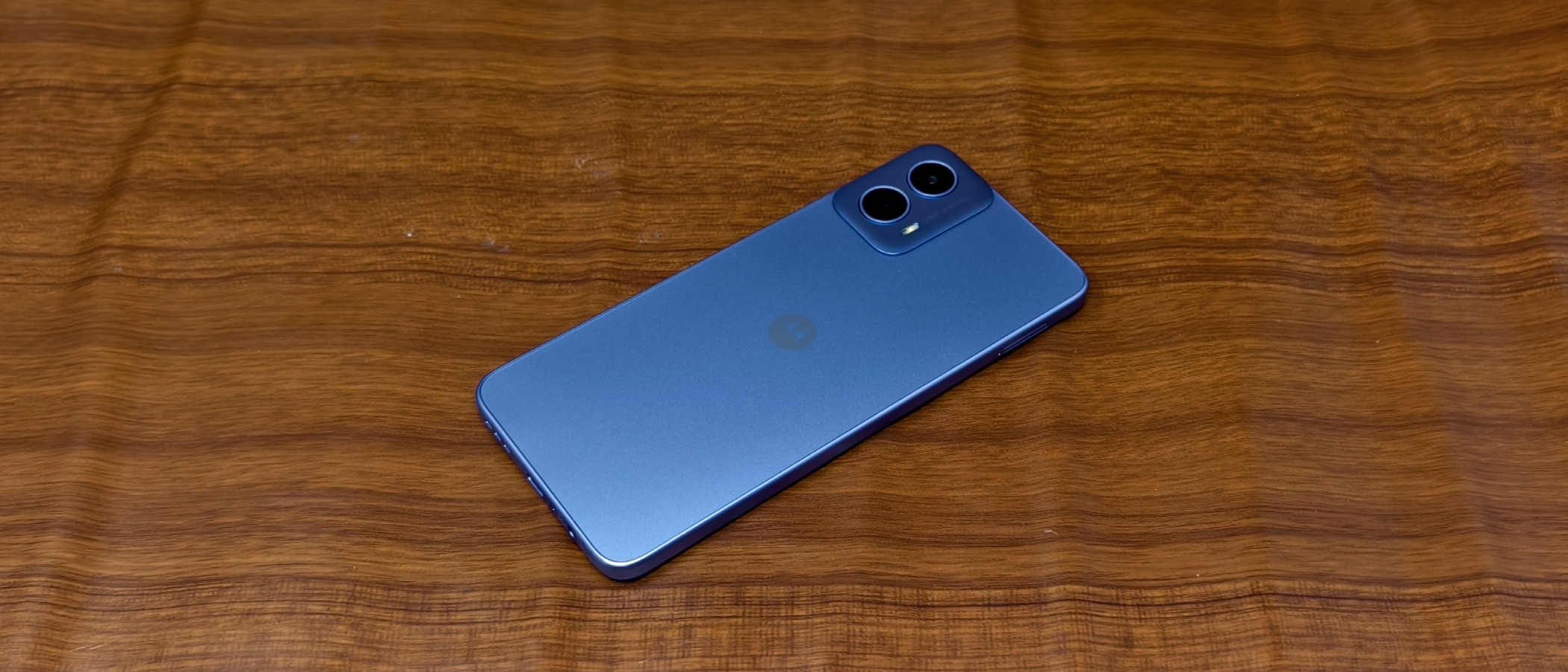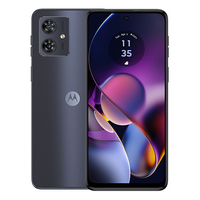TechRadar Verdict
While the Moto G34 mostly ticks all the 'budget phone' boxes with its low price, low-res display and low charging speed, it goes above and beyond in a few areas. Its cameras, processing power and software features all exceed what you might be expecting for a phone of its price.
Pros
- +
Low price
- +
Decent chipset
- +
Expandable storage
Cons
- -
Unimpressive display
- -
Slow to charge
- -
Slow camera processing feature
Why you can trust TechRadar
Moto G34 two-minute review
Motorola has decided to continue its long-held siege on our list of the best cheap phones with its new Moto G34 — this was designed to be one of the most affordable 5G phones out there, and it’s a pleasantly surprising success.
One of the first 2024 entries into Motorola’s low-cost line of Moto G handsets, you quickly come to know what to expect from these handsets. They won’t hurt your bank account but generally deliver unimpressive specs, a poor camera performance and lackluster displays. Given that the G34 is being marketed on its low price, you’d expect it to tick all these boxes, but it manages to punch above its weight in a few departments.
A question I asked myself when I begun testing the phone was: “given that budget mobiles have weak specs to keep the price low, is 5G even useful on a handset of this price?” The answer I came up with is “in some use cases yes”.
The camera is a good example, because it’s actually okay for a super-cheap phone like this. Admittedly ‘okay’ isn’t a glowing recommendation, but it’s one of the kindest words I’ve ever used to describe a Moto phone camera. And with 5G, you can easily post snaps on social media, save them to a cloud or download an editing app to tweak them.
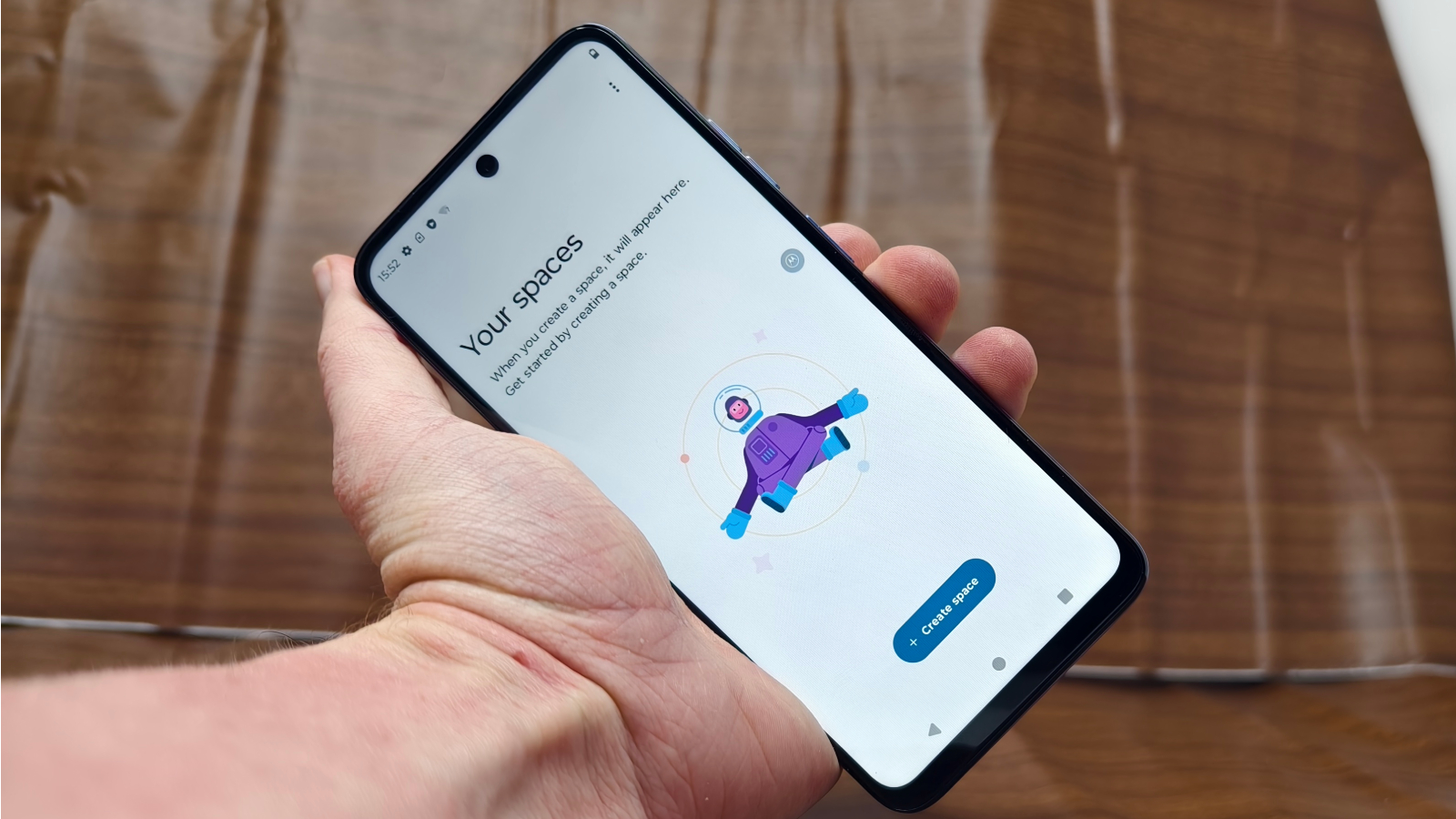
One small camera feature does damage the experience though: every time you take a snap, the phone spends ages processing it before it’s added to the camera gallery. This means you can’t see the finished product for while, which can be annoying if you want to know whether you’ve got the shot or need to try again.
The chip is, again, ‘okay’, but that’s great for a budget phone – the G34 wasn’t as sluggish, slow or prone to stuttering as many other handsets you could buy for the same price. You’re not going to be demolishing opponents in Call of Duty: Mobile any time soon but it’ll hold its own. I could download games on my bus ride into work thanks to the connection speeds as long as they were low-intensity gentle ones.
Plus the phone boasts nice, clean Android 14 with all of its personalization features, a chunky battery and up to 1TB of expandable storage, which is all appreciated.
It’s not all amazing, though. The Moto G34 has a relatively low-res display, with its LCD tech leaving colors looking a little washed out. If you’re buying a 5G phone to stream Netflix from out and about, you’d do better to just buy a same-price 4G phone with a better screen, or splash out a little more.
Plus, it’s really slow to charge, which admittedly is impossible to tie into the handset’s 5G features so let’s just list it as a standalone ‘con’ for the phone.
So you’re getting what you pay for with the Moto G34 and a little bit more – not a lot more, but enough that the price tag is easy to palate.
Moto G34: price and availability
- Released in January 2024
- On sale in the UK, possibly AU in future, unlikely in US
- Costs £149.99 (roughly $190, AU$290)
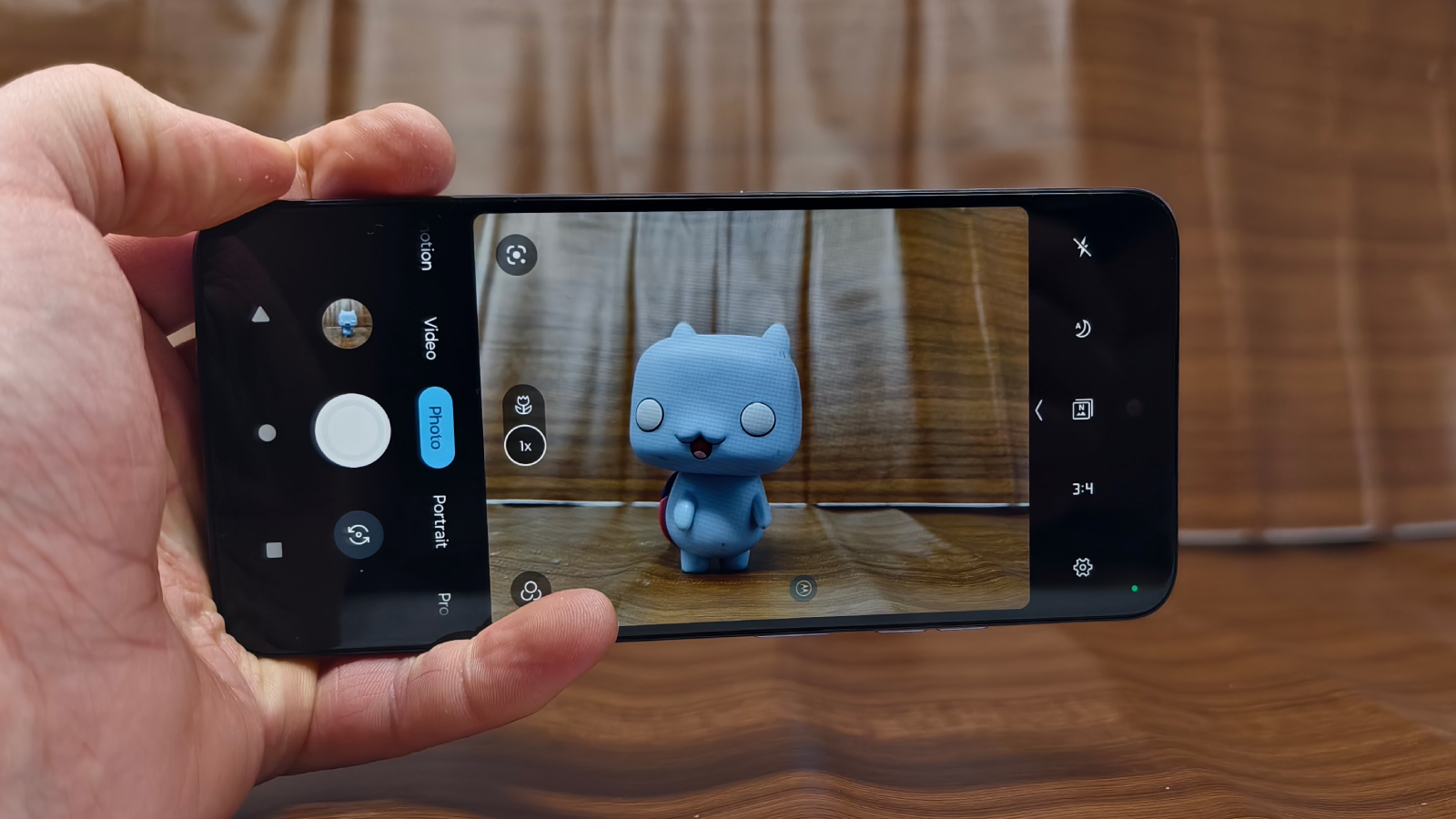
The Moto G34 was unveiled to the world in December 2023, but it went on sale in the UK a month later in the new year.
The handset costs £149.99 for its sole 4GB RAM and 128GB model, though you can choose between black, green and blue versions. In some regions there are variants of the mobile with more RAM or various amounts of storage, but that’s not the case in the UK.
No US or Australian availability has been announced for the handset but the cost converts to around $190 or AU$290 – Moto typically sells different mobiles Stateside so the G34 likely won’t go on sale in America, but given precedent, it could reach the Australian shores.
That price puts the Moto G34 almost without equal in the realms of 5G phones, as most cost at least 25% more (well, until sales come). Instead, the handset is bumping elbows with some 4G competitors from Samsung, Xiaomi and even Motorola itself, with brands offering you slightly better features for the same price if you don’t need 5G.
- Value score: 4 / 5
Moto G34 review: specs
The Moto G34 has specs that match its budget: low-end. Here's the skinny:
| Header Cell - Column 1 | |
|---|---|
| Dimensions: | 162.7 x 74.6 x 8mm |
| Weight: | 179g |
| Screen: | 6.5-inch 20:9 HD (720x1600) 120Hz LCD |
| Chipset: | Qualcomm Snapdragon 695 |
| RAM: | 4GB |
| Storage: | 128GB |
| OS: | Android 14 |
| Primary camera: | 50MP, f/1.8 |
| Macro camera: | 2MP, f/2.4 |
| Front camera: | 16MP, f/2.4 |
| Audio: | Stereo speakers, 3.5mm jack |
| Battery: | 5,000mAh |
| Charging: | 18W wired |
| Colors: | Ice Blue, Charcoal Black, Ocean Green (faux leather) |
Moto G34 review: design
- Average-sized Android that's not too heavy
- Camera bump doesn't stick out much
- USB-C port and a 3.5mm headphone jack
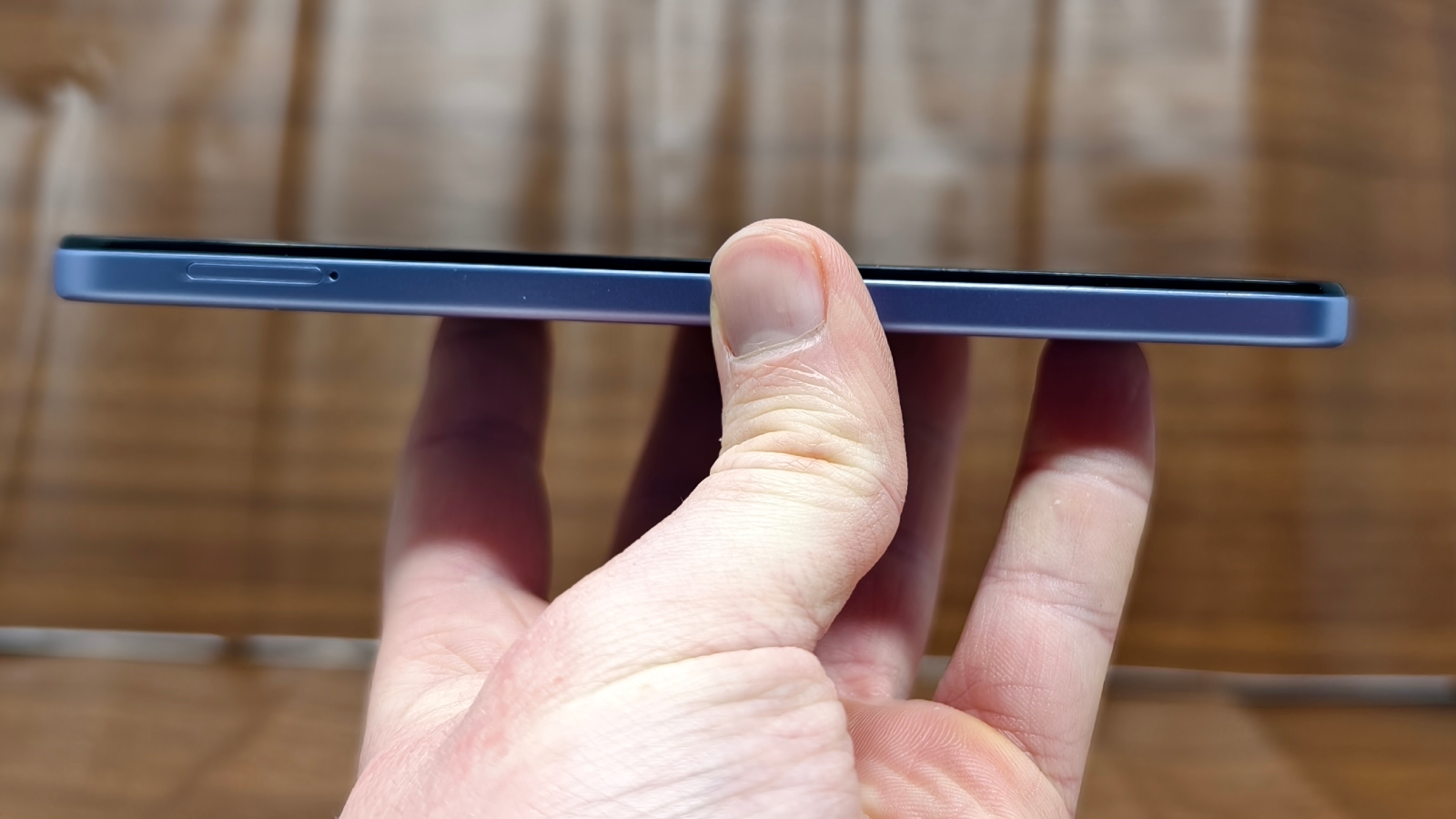
Like many phones from Motorola, the Moto G34 has a pretty utilitarian design: it’s another chocolate-bar phone.
The G34 measure 162.7 x 74.6 x 8mm and weighs 179g so it’s pretty lightweight as far as Android phones go, and not too big either.
On the bottom edge is a USB-C port and 3.5mm headphone jack — remember those?! — and the right edge holds an easily-reachable power button and a slightly-less-reachable volume rocker. As this phone is roughly averaged-sized, it should be usable one-handed for all but the smallest hands.
Like many budget phones, the G34 has a flat edge, but unlike many other mobiles that use this feature (including some Moto offenders) it’s not too angular — this wasn’t an uncomfortable phone to hold. While that’s not exactly a compliment, it’s definitely not an insult either.
On the back of the phone is a slight protrusion that houses the two camera lenses. This doesn’t stick out too far, so you can put the handset face-up on a table without turning it into a seesaw.
As mentioned, there are three color options for the phone, and we used the blue one. The green option uses faux leather which presumably gives it a much more premium feel, though I didn’t test this one so I can’t say for sure.
- Design score: 3.5 / 5
Moto G34 review: display
- A 6.5-inch display, big but not huge
- Fairly low-res 720 x 1600 resolution
- LCD leads to colors looking washed-out
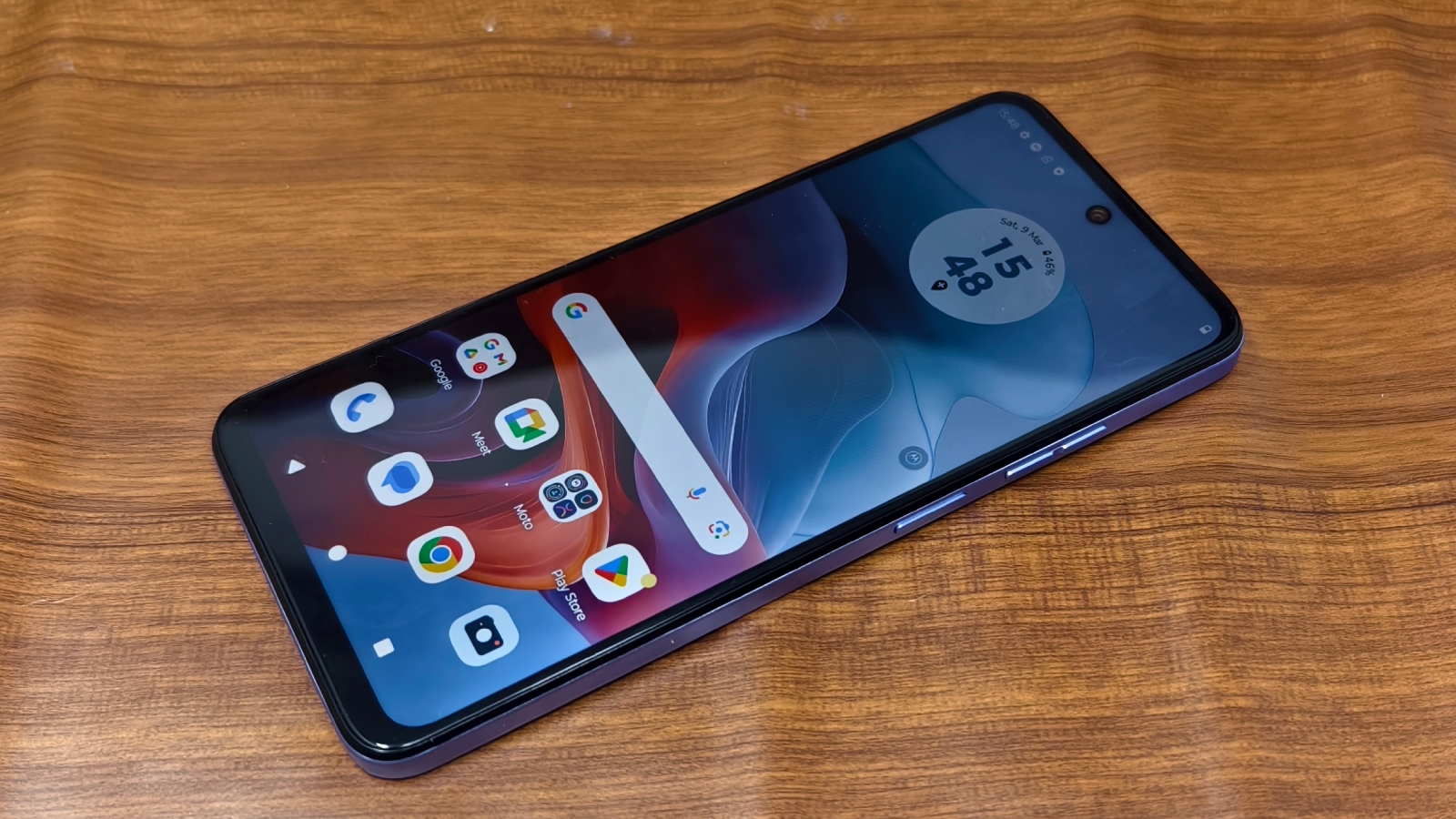
You probably shouldn’t be picking the Moto G34 as your chosen phone if it’s to stream high-quality movies over the web, because the Moto might struggle to show you that ‘quality’ part.
The phone has a 6.5-inch display, so it’s fairly big and will show you lots of WhatsApp messages, big Instagram posts or lots of your video game. However it only has a HD resolution of 720 x 1600, so videos don’t look as crisp as they do on most other mobiles.
Moto has also opted to put an LCD screen on the phone, despite other low-cost mobiles using OLED which has better contrast, colors and brightness. At least the 120Hz refresh rate makes motion look nice and smooth.
- Display score: 2 / 5
Moto G34 review: software
- Stock Android 14, but only one software update
- Lots of customization options
- Moto's Quick Actions make navigation easy
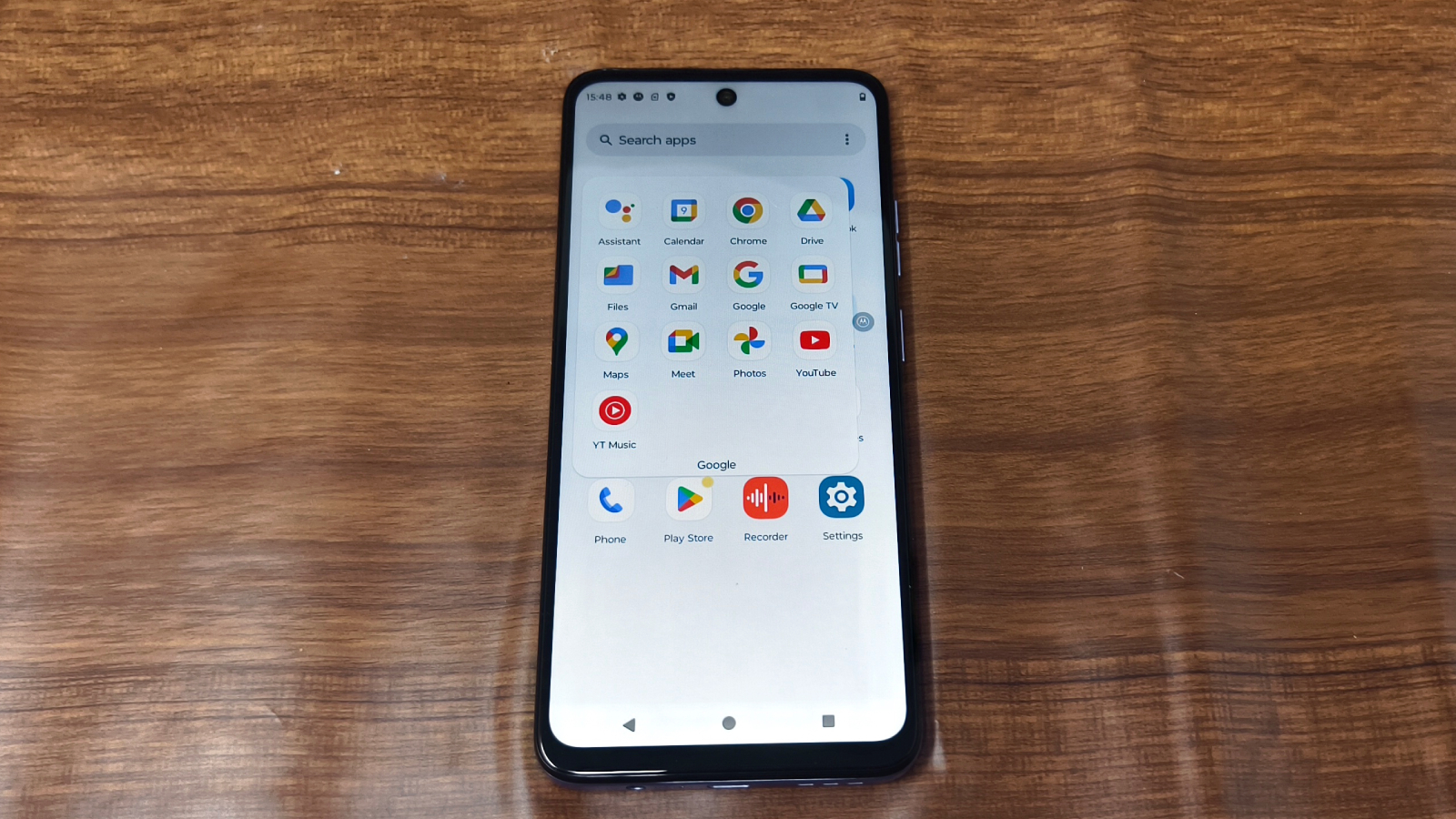
Not only is the Moto G34 one of the cheapest 5G phones, but it’s one of the most affordable ways you can get yourself a handset with stock Google-designed Android.
The Moto comes on Android 14, the newest version of the popular operating system. Moto has only promised one update though, with three years of security updates, which software aficionados might find lacking.
Stock Android is a nice clean operating system, mostly free from bloatware and with an easy-to-access swipe-up app drawer so that your home screen remains nice and clear until you customize it.
Android 14 in particular is great for customization options to help you design your interface, though some usual Moto additions are missing. You can change the font, color scheme, app icon shape and more though, so there’s still a lot you can do.
Moto does bring its stalwart quick actions, which let you bring up certain apps just with gestures: you can do a double karate chop to turn on the torch or a twist to open the camera app, for example. Once you get the knack of these, they become really convenient navigation options.
An addition which is relatively new to Moto phones is the Moto Unplugged app which lets you temporarily pare back your handset when you want to go distraction-free for a while. It was pretty handy for when I wanted to focus on writing this review — until I realized that I needed to use the phone for the review, that is!
- Software score: 3.5 / 5
Moto G34 review: cameras
- 50MP main and 2MP macro cameras
- 16MP selfie camera for self portraits
- Slow photo processing provides photography pain
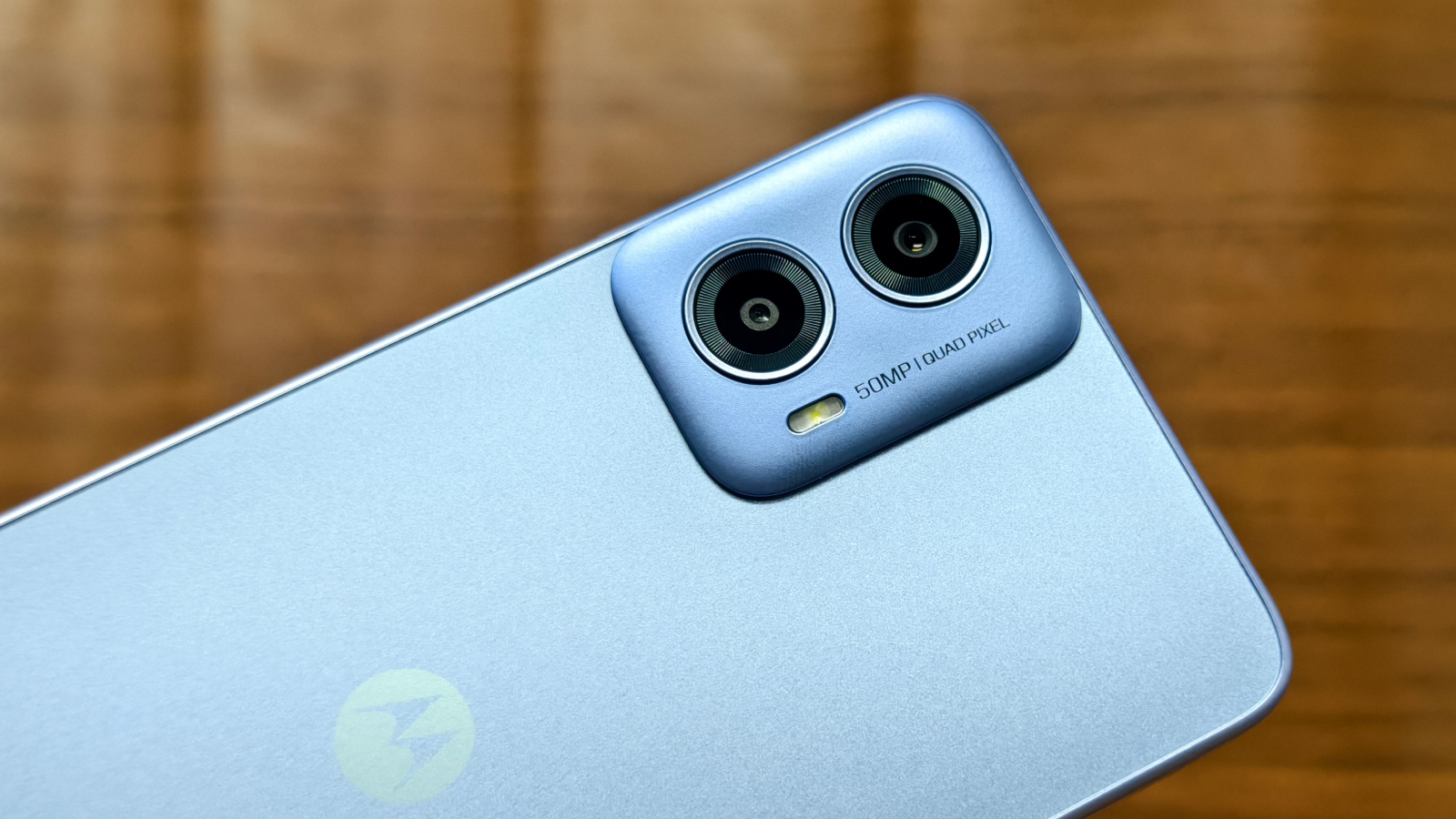
As you can see from the images, the Moto G34 boasts two rear cameras, though only one is worth talking about. They’re a 50MP f/1.8 main and a 2MP f/2.4 macro snapper. They’re joined by a 16MP f/2.4 selfie camera on the front.
If your expectations for the camera prowess of a budget phone like this are very low, then you’ll be pleasantly surprised by the G34. That’s not to say it’s good, but it’s fine, and at this price that’s all you can ask for.
In decent lighting conditions, snaps have sufficient detail, though they can look a little washed-out in terms of color. In low-lighting conditions – I don’t mean night-time, and the cookie picture below shows that even household lighting doesn’t cut it – snaps lose a lot of detail and often seem a bit muddy. Plus, the phone didn’t handle contrast well, with darker areas during daylight shooting losing loads of detail.
That may sound overwhelmingly negative, but pictures taken on the Moto G34 did retain more quality, light and color that snaps taken on other similarly priced phones I’ve tested in the past, so I wasn’t disappointed by its performance.
Using digital zoom, you can close the distance up to 8x, but images get very grainy past 2x so I wouldn’t recommend it.
Selfies are a small cut above, and I found that the front camera would cope better if my face wasn’t beautifully lit up. Portrait mode was surprisingly good at working out what it shouldn’t and shouldn’t blur too, and even messy bed hair couldn’t fool it.
Macro mode is… well, pretty dreadful, actually – I found it impossible to take a close-up shot with sufficient lighting and detail to exceed the capabilities of the main camera. Most of the time, my macro shots were blurry out-of-focus messes. Avoid!
The usual crowd of extra modes are here: photographers can use portrait mode, Pro mode, spot color (which turns a photo monochrome except for one color), dual capture, night mode and ‘Photo Booth’ which takes four pictures a few seconds apart, like you’re in an old-school photo booth. Videographers can enjoy some of the same including dual capture and spot color as well as a slow-motion mode.
One annoying aspect of the G34 is that, when you take a photo, the device will spend a while processing it. This sometimes took over a minute and I couldn’t find a way to turn the processing off — this all just meant you can’t see the proper image for a while after taking it. Ironically, the processing barely made a difference to image quality, so this isn’t as big of an issue as it otherwise would be.
Moto G34 camera samples

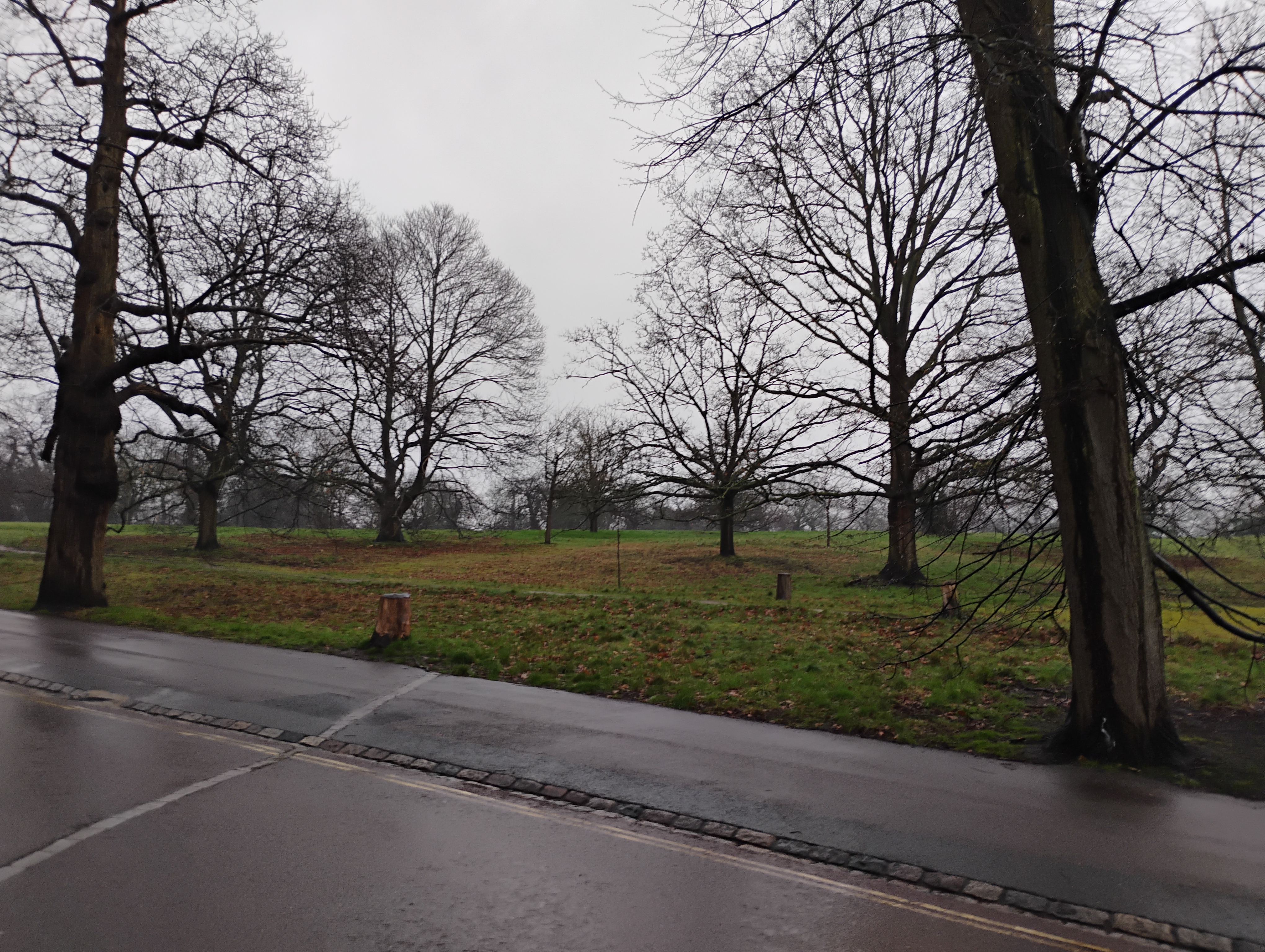

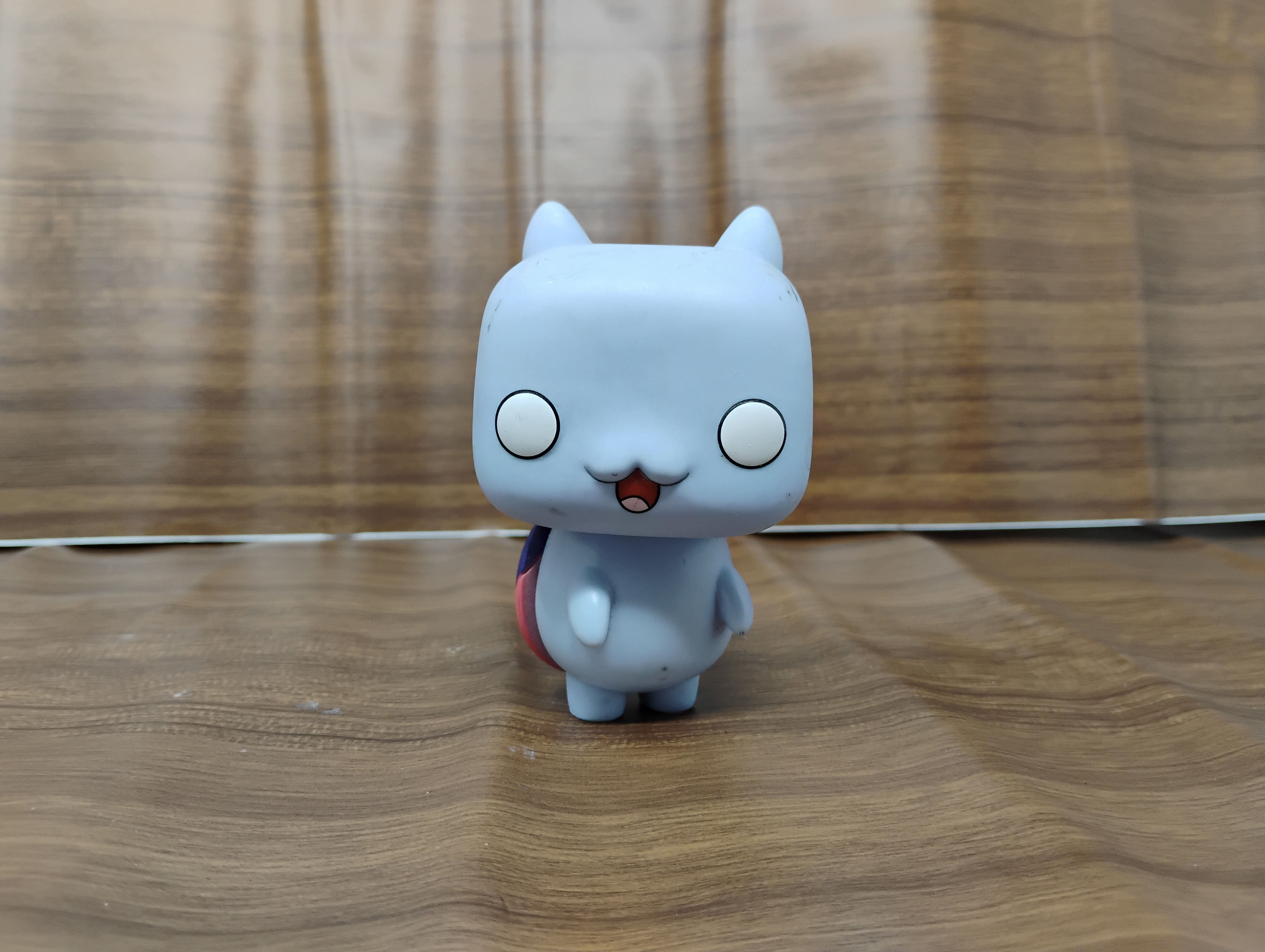


- Camera score: 2.5 / 5
Moto G34: performance and audio
- Snapdragon 695 is fit for purpose
- 128GB storage can be expanded up to 1TB, plus 4GB RAM
- 3.5mm headphone jack for wired audio
The Moto G34 has a surprising chipset for its price: the Snapdragon 695 it uses often shows up in pricier (though still low-end) mobiles, and Motorola could have got away with sticking a weaker processor in its mobile.
This is paired with 4GB RAM and 128GB storage, though both are expandable. You can increase your storage by 1TB thanks to the microSD card slot, and use RAM expansion to temporarily turn unused storage space into extra power.
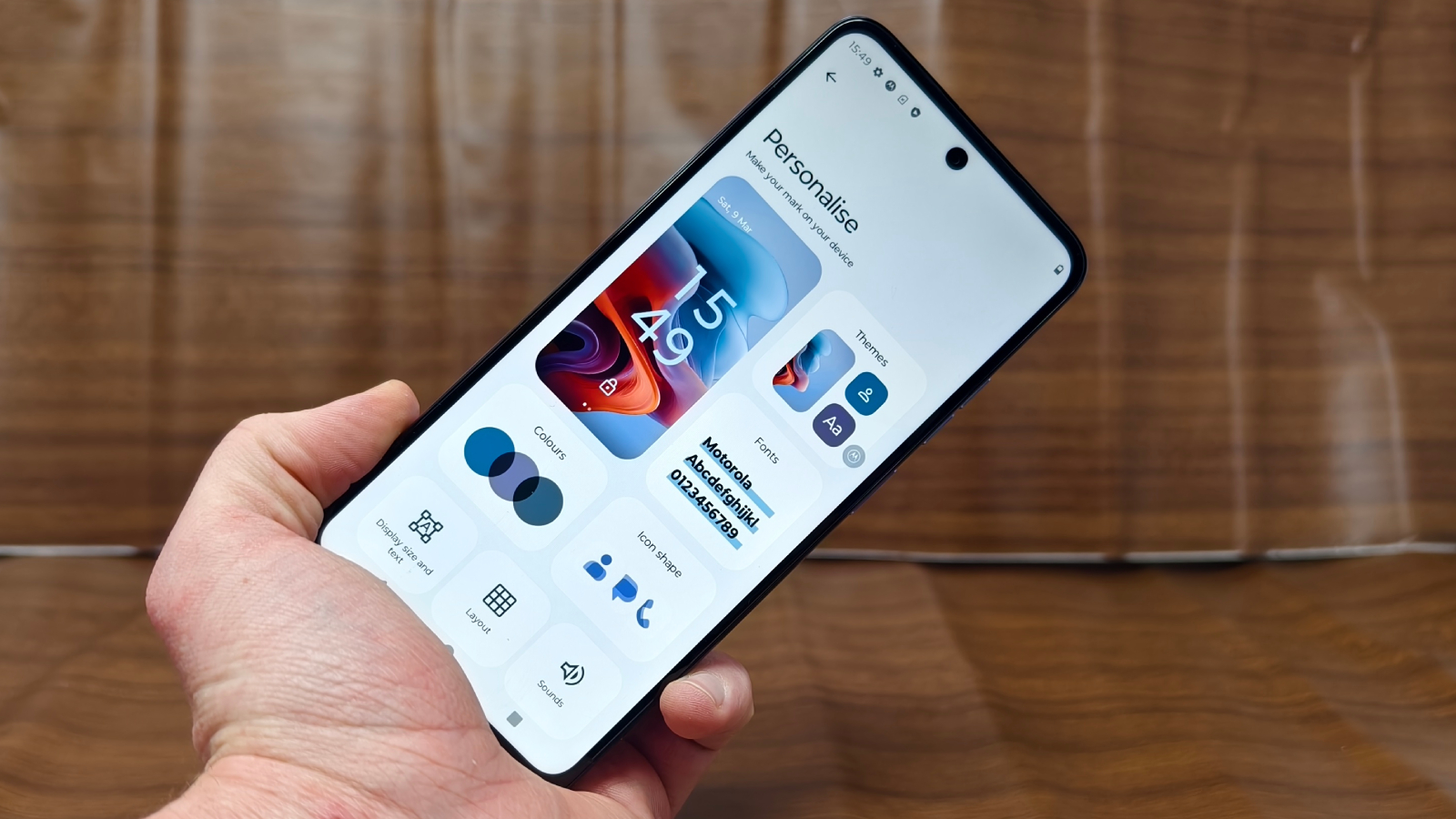
Using the Geekbench 6 benchmark test, the Moto returned a multi-core score of 2,035. That’s roughly around the score of 5-year-old flagships like the Samsung Galaxy Note 10 (2,092) and Huawei Mate 20 (2,134). For recent handsets, some budget mobiles from the last few years have similar scores including OnePlus’ Nord N20 (1,962) and Nord CE 2 Lite (1,952), both of which also have the Snapdragon 695 chipset.
When it comes to gaming, I was pleasantly surprised by how the Moto could hold its own through intensive games of Call of Duty: Mobile and other titles. There were startlingly few stutters or lags during online play; if it weren’t for the display and speaker quality, I could just have well been playing on a mid-ranged gaming phone.
Audio fans will love to see the Moto G34 boasting a 3.5mm headphone jack, so you can use wired headphones, microphones and more using the port. It also has Bluetooth 5.1 for wireless headphones if you prefer.
The G34 also has stereo speakers for audio; they’re nothing to write home about and don’t compare with those on pricier mobiles, but are fine for if you misplaced your headphones.
- Performance score: 3 / 5
Moto G34 review: battery life
- Big 5,000mAh battery
- Phone easily lasts a day of use, and almost two
- Slow to charge at 18W
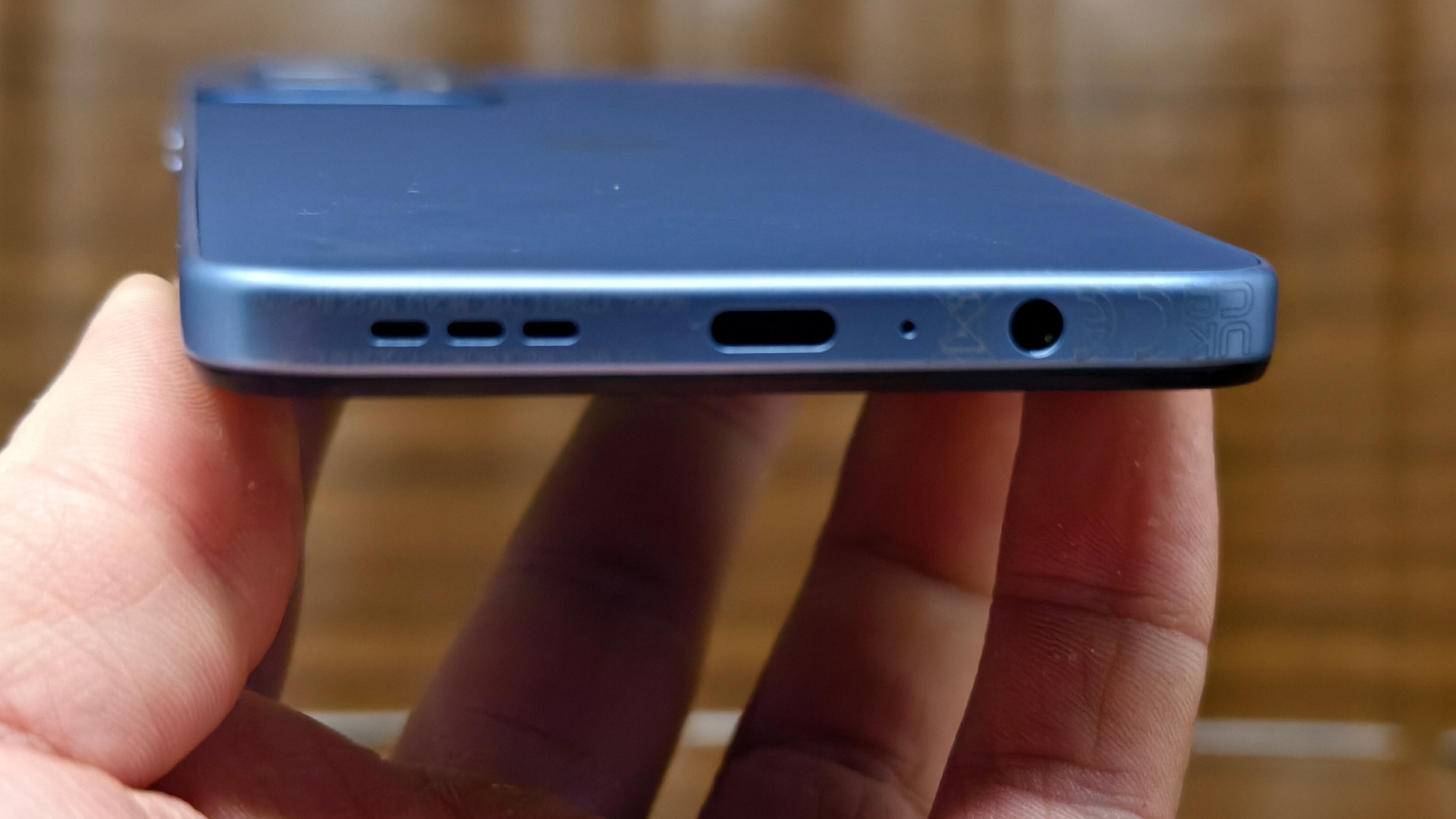
It wouldn’t be a Moto phone if it didn’t have a battery the size of a small baby, would it? The G34 boasts a 5,000mAh battery, just like the vast majority of other mobiles from the company, which is a big power pack for a phone.
A battery like this would keep even a juice-hungry mobile powered for a long time, but between its HD screen and mid-tier chipset, the Moto G34 really makes the most of this battery. It easily lasts a day on a full charge and, in our testing, often came close to hitting two days of stopping power on a single charge.
It’s good that you don’t have to power up the phone frequently, though, because it’s not fast to charge. At 18W powering, it takes a glacial hour or more to power from empty to full, which will certainly have you sitting by the charger and twiddling your fingers.
As with almost any phone at this price, there’s no wireless charging or reverse wireless powering in sight.
- Battery score: 4 / 5
Should you buy the Moto G34?
| Attributes | Notes | Rating |
|---|---|---|
| Value | One of the cheapest 5G phones on the market offers value for money beyond this selling point. | 4 / 5 |
| Design | A by-the-numbers design, but it's lightweight and not too big. | 3.5 / 5 |
| Display | A low-res LCD screen isn't saved by its 120Hz refresh rate. | 2 / 5 |
| Software | Stock Android is a favorite for many phone fans, with Moto bringing welcome additions, though only one software update may hurt. | 3.5 / 5 |
| Camera | The camera is better than similar-priced rivals, but it's still not amazing. | 2.5 / 5 |
| Performance | The Moto handles itself surprisingly well in gaming and benchmark tests | 3 / 5 |
| Battery | A nice big battery sees the Moto easily sail through a day of use... except that charging is teeth-pullingly slow. | 4 / 5 |
Buy it if...
You want low-cost 5G
If you just need to connect to 5G networks by any means, then the Moto G34 is one of your cheapest options for doing so.
You need lots of storage space
It's not everyday that we see a budget phone that can reach up to 1TB expandable storage, so if you want a portable hard drive that can make calls, it's a good option.
You're a super-low-budget gamer
If you really can't afford a mid-ranged gaming phone, the Moto G34 is actually decent for playing mobile games, at least compared to its same-priced rivals.
Don't buy it if...
You stream movies and TV shows
With its 720p LCD display, the Moto G34 isn't exactly an entertainment fan's powerhouse. If you want to stream on the go, pick a device with a 1080p screen.
You need quick charging
Moto phones' big batteries makes charging less important, but if you're a fan of snappy powering, you really won't enjoy the G34.
You want several years of updates
With only one guaranteed software update, the G34 won't get new Android features for years to come. At least you're getting three years' security updates.
Moto G34 review: Also consider
If you want to make sure you're getting bang for your buck, here are three other smartphones you might want to consider instead of the Moto G34:
Moto G54
Only a small sum more upgrades your G34 to a G53 with a higher-res display, better speakers and more in-built storage. It's the same in most other ways, except is somehow even slower to charge, and comes on Android 13 instead of 14.
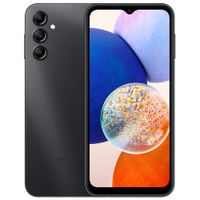
Samsung Galaxy A15
Samsung's ultra-low-price 5G Galaxy phone has a fantastic display, as well as decent cameras and pretty fast charging for the price. Just make sure you buy the 5G variant and not the 4G one.
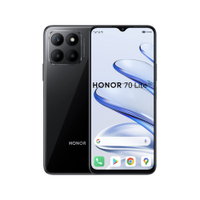
Honor 70 Lite
Another 5G phone that undercuts the Moto, the Honor 70 Lite has lots of similar specs but four rear cameras and faster charging. Several areas show weaker specs, though.
| Moto G34 | Moto G54 | Samsung Galaxy A15 5G | Honor 70 Lite | |
|---|---|---|---|---|
| Starting price (at launch): | £149 (roughly $190, AU$290) | $199 / £179 / AU$299 | $199 / £199 / AU$349 | £139 (roughly $175, AU$270) |
| Dimensions: | 162.7 x 74.6 x 8mm | 161.6 x 73.8 x 8mm | 160.1 x 76.8 x 8.4mm | 163.7 x 75.1 x 8.7mm |
| Weight: | 179g | 177g | 200g | 194g |
| OS (at launch): | Android 14 | Android 13 | Android 14 (One UI 6) | Android 12 (Magic UI 6.1) |
| Screen Size: | 6.5-inch | 6.5-inch | 6.5-inch | 6.5-inch |
| Resolution: | 720x1600 | 1080x2400 | 1080x2340 | 720x1600 |
| CPU: | Snapdragon 695 | Dimensity 7202 | Dimensity 6100+ | Snapdragon 480+ |
| RAM: | 4GB | 4GB | 4GB | 4GB |
| Storage (from): | 128GB | 128GB | 128GB | 128GB |
| Battery: | 5,000mAh | 5,000mAh | 5,000mAh | 5,000mAh |
| Rear Cameras: | 50MP main, 2MP macro | 50MP main, 2MP macro | 50MP main, 5MP ultrawide 2MP macro | 50MP main, 2MP macro, 2MP depth |
| Front camera: | 16MP | 16MP | 13MP | 8MP |
How I tested the Moto G34
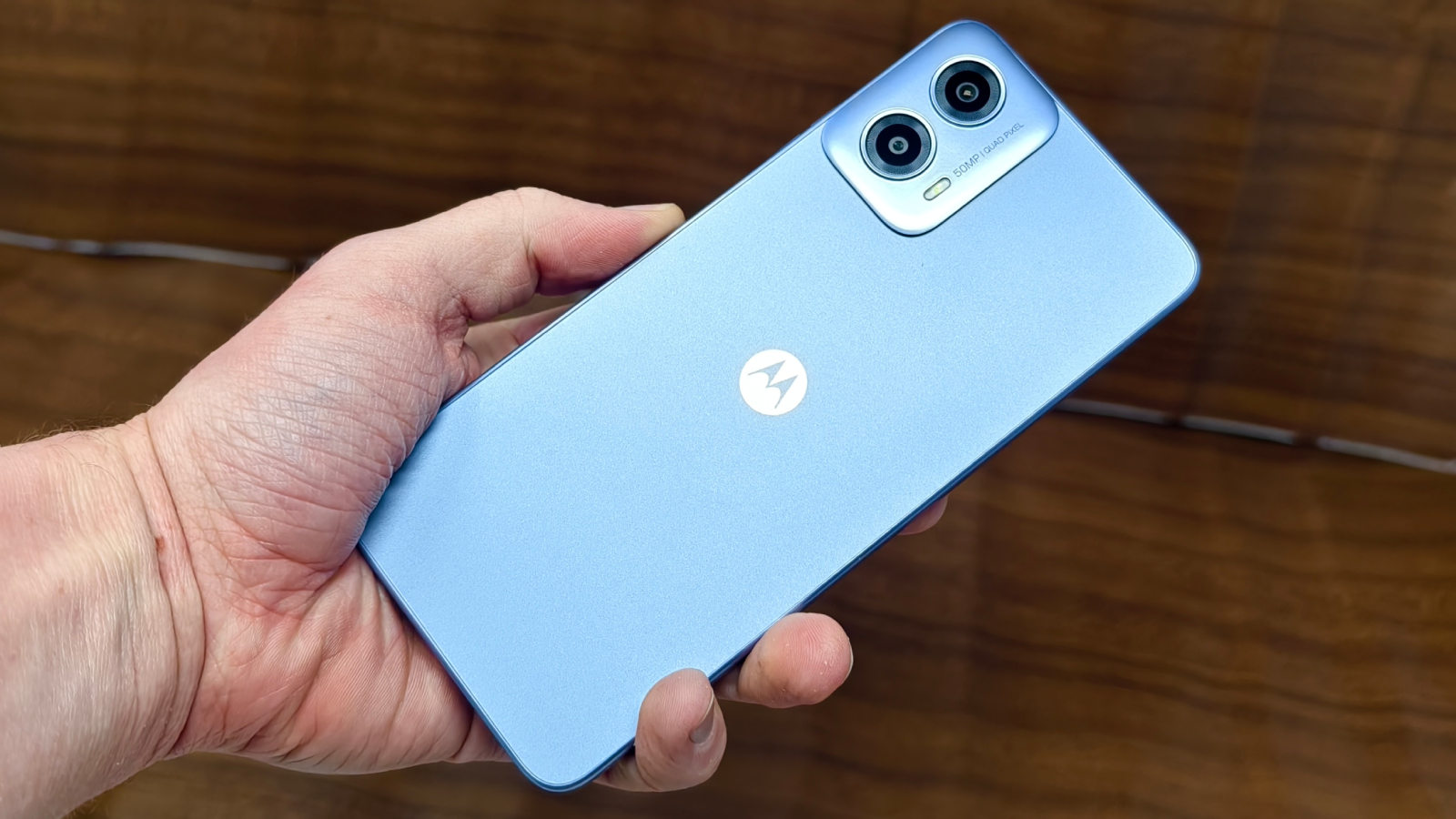
- Review test period = 3 week
- Testing included = Everyday usage, including web browsing, social media, photography, video calling, gaming, streaming video, music playback
- Tools used = Geekbench 6, Geekbench ML, GFXBench, native Android stats
As you can tell, I tested the blue version of the Moto G34, in its sole 4GB and 128GB variant. I did not use the expandable storage in testing.
To write this review, I used the Moto G34 for roughly three weeks, not including the time I left the phone running prior to testing to normalize its battery. This testing involved lots of photography, a fair amount of gaming and a little bit of streaming movies and music too.
Please note that the product photography was undertaken prior to the testing period, hence why it looks like the phone has barely been used; it hadn't!
I've been reviewing smartphones for TechRadar for over five years now, starting with another budget Moto phone back in 2019. I've used countless handsets from the company and all its major competitors, as well as some of the other gadgets Moto has tried out (anyone remember the Moto 360?).
First reviewed March 2024

Tom Bedford joined TechRadar in early 2019 as a staff writer, and left the team as deputy phones editor in late 2022 to work for entertainment site (and TR sister-site) What To Watch. He continues to contribute on a freelance basis for several sections including phones, audio and fitness.
